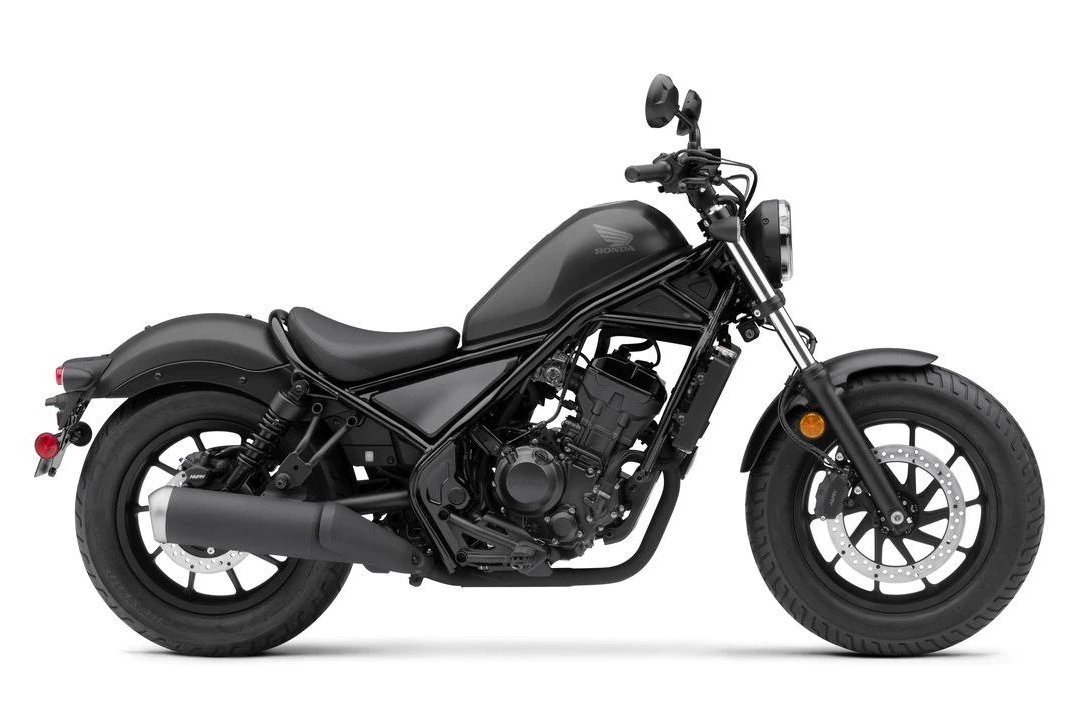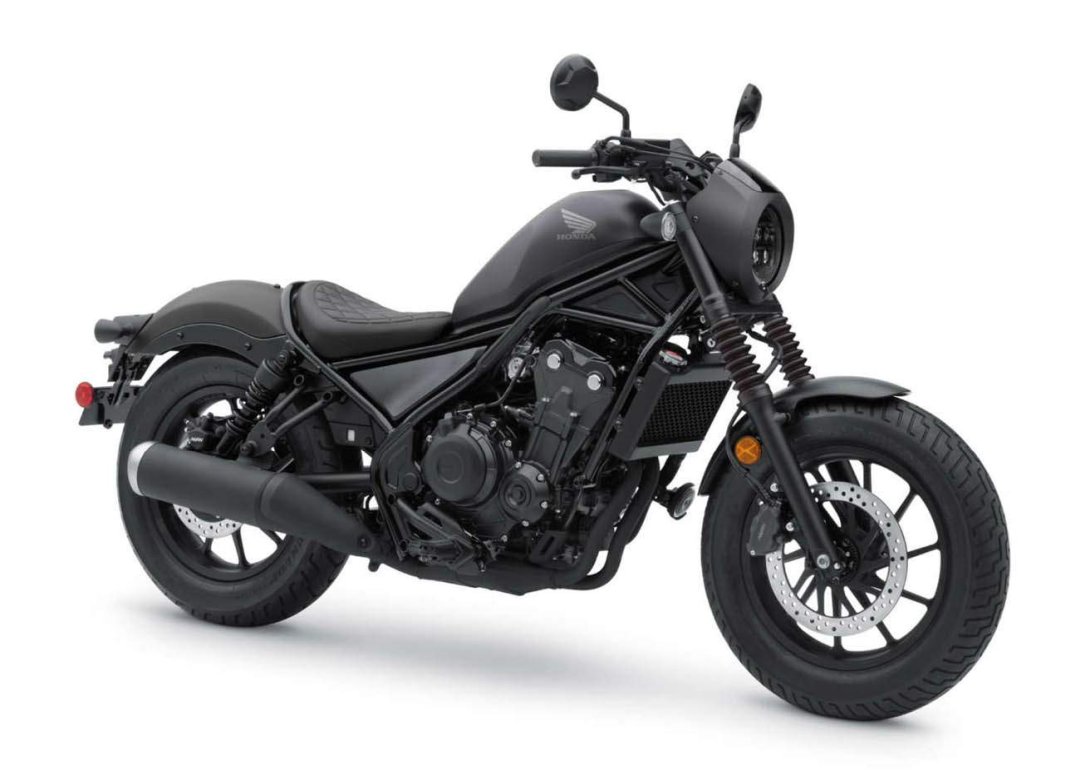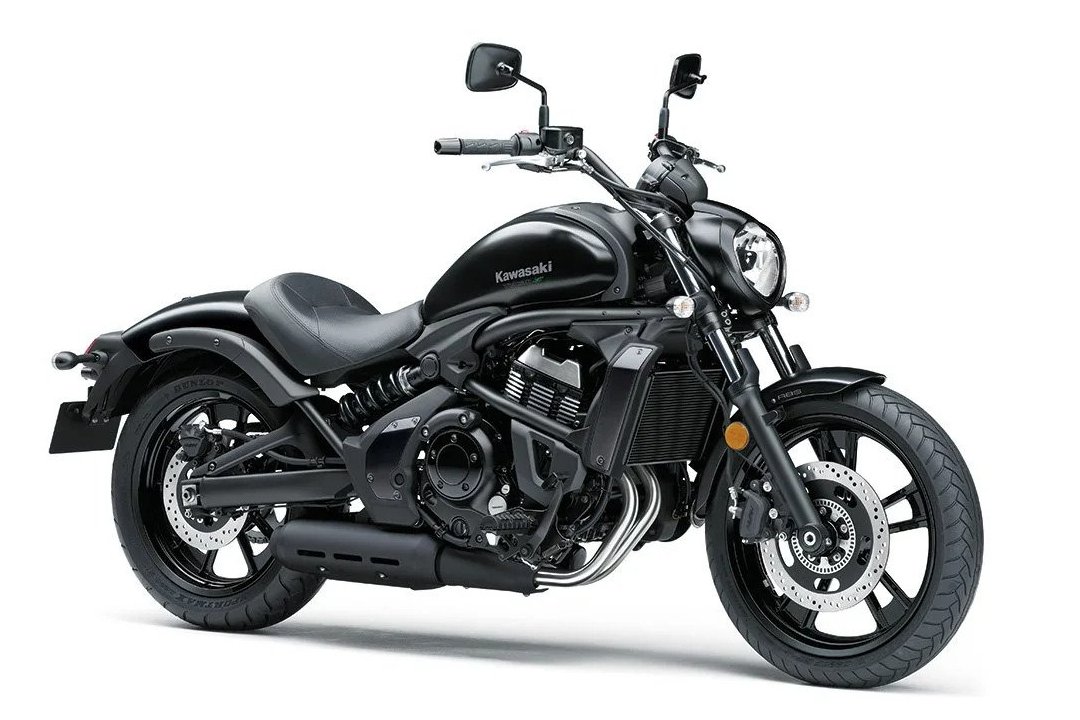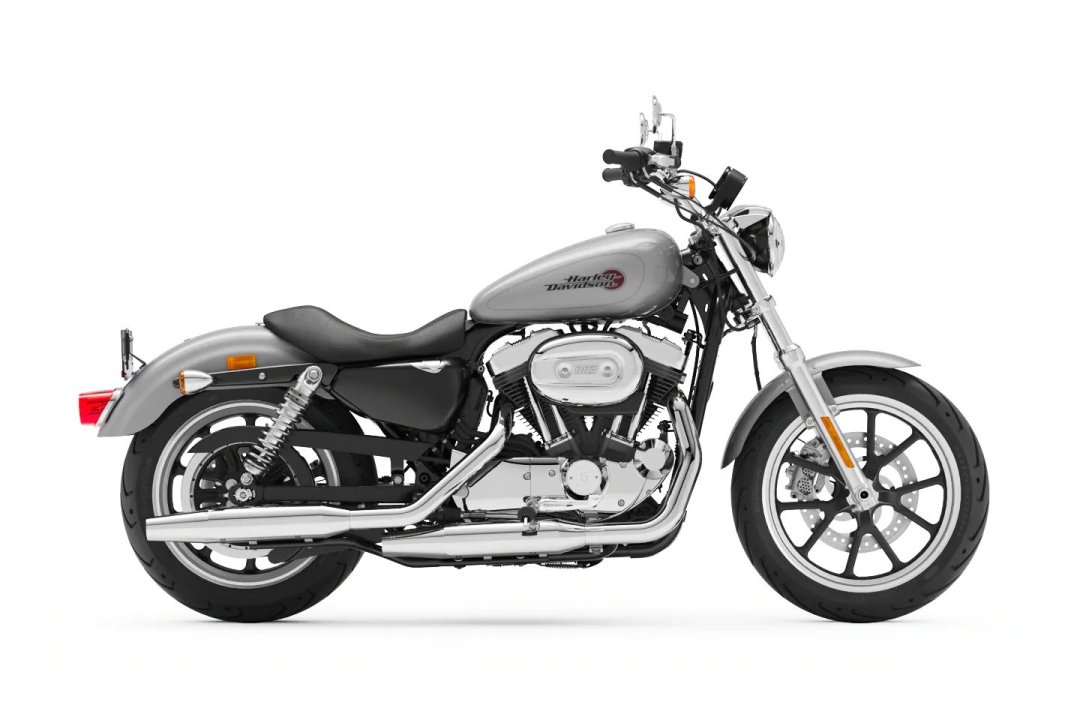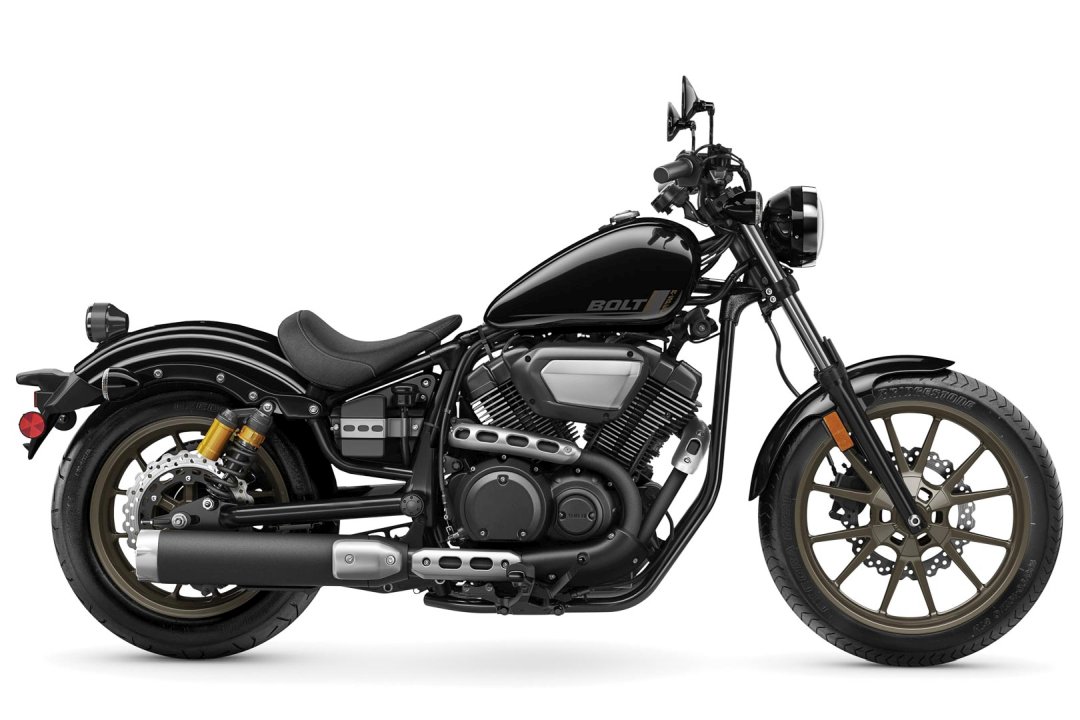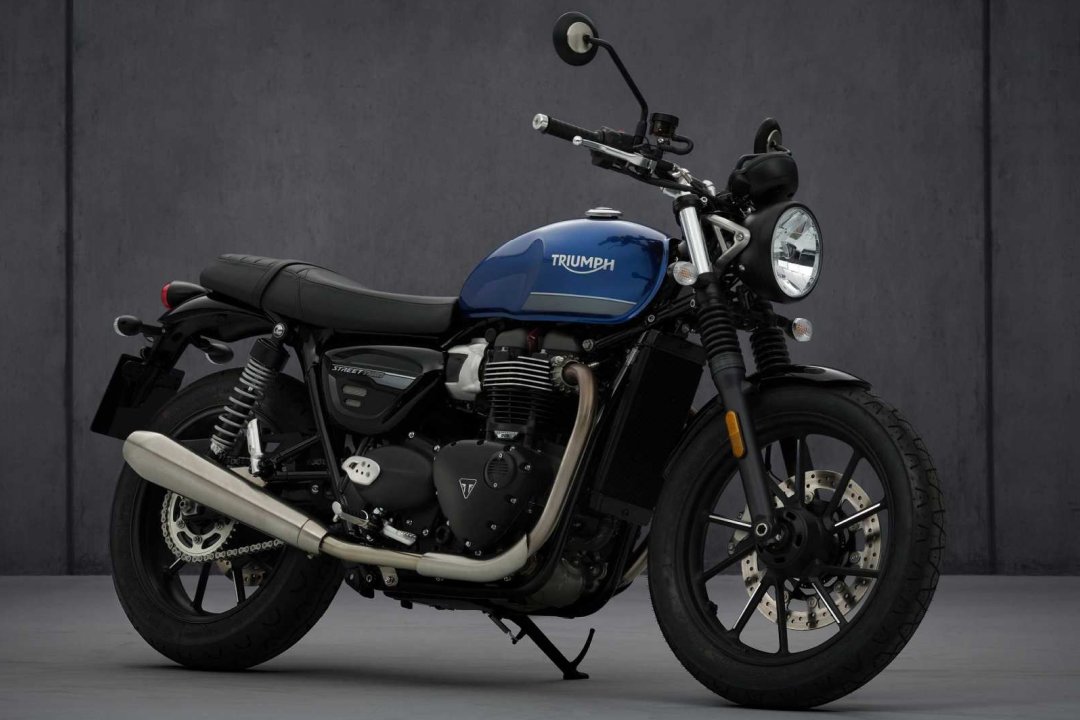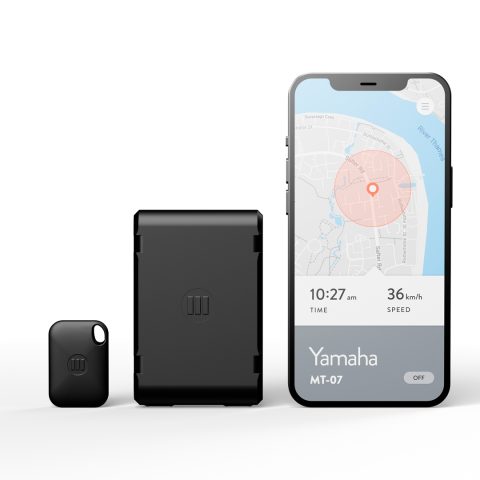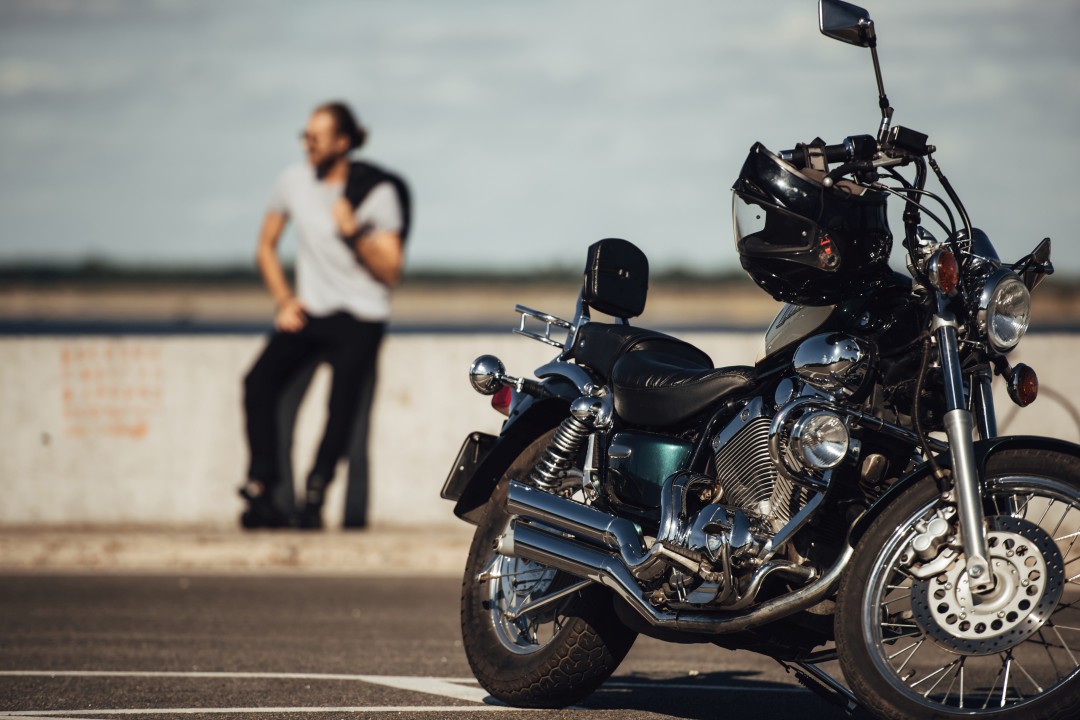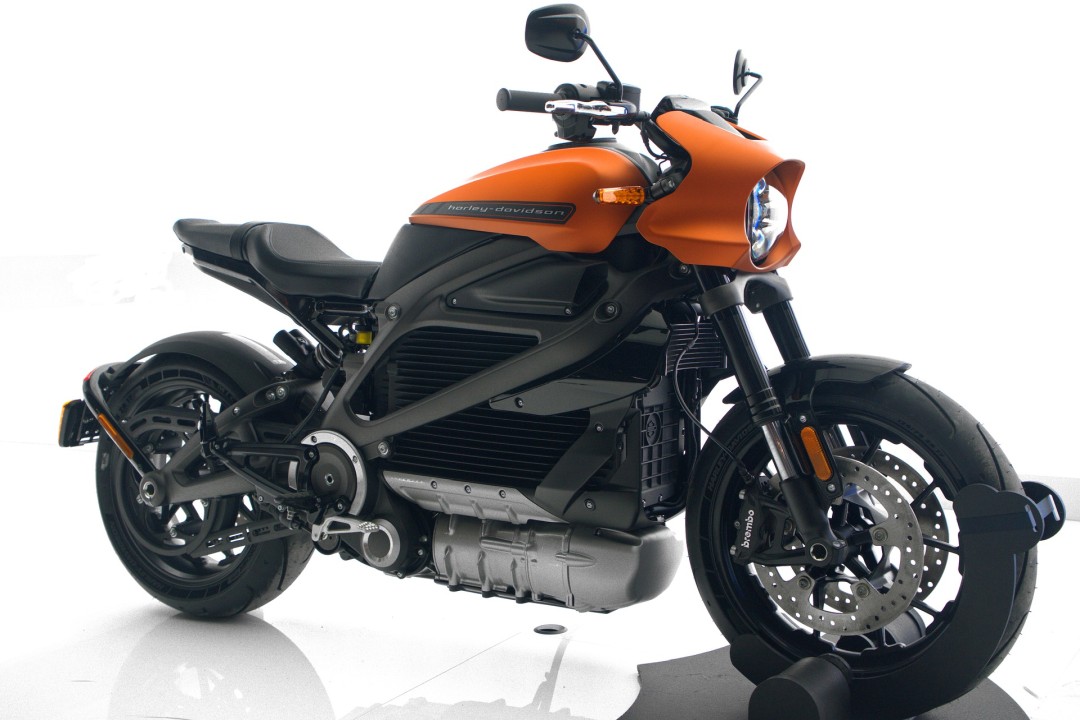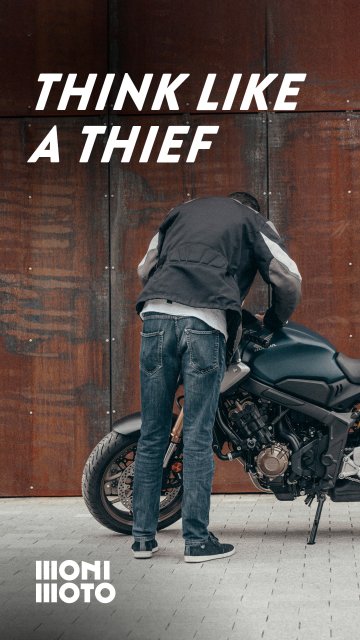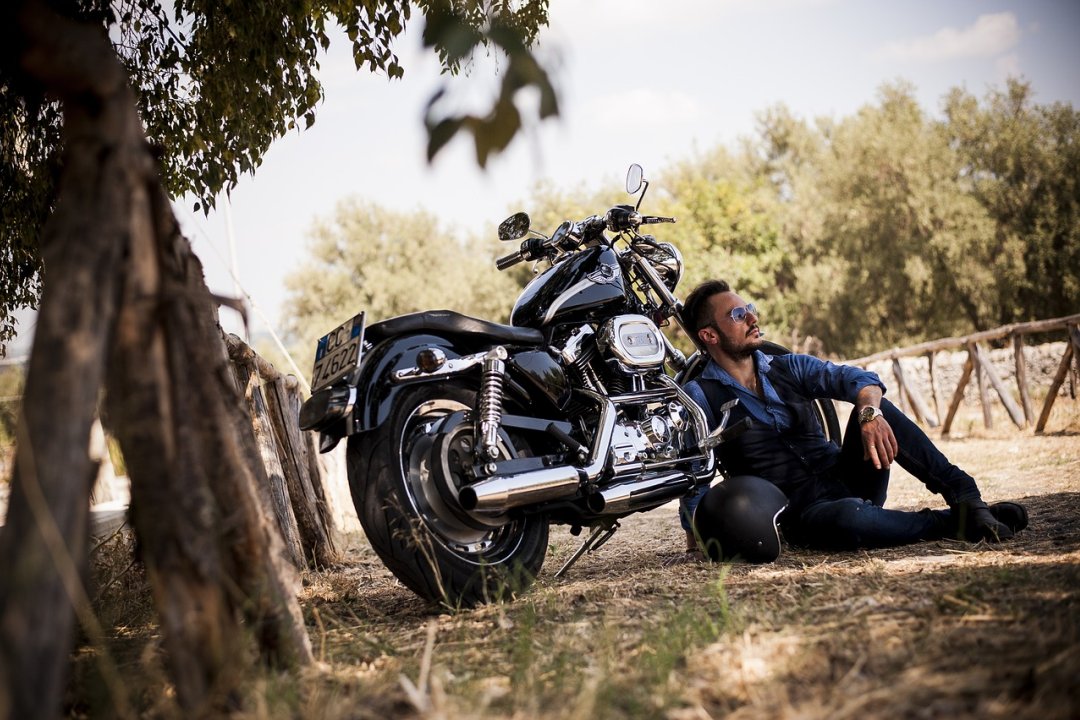
So you’re a new rider eyeballing a cruiser motorcycle? That’s an excellent choice. Cruisers make for great first bikes for several reasons. We bet you’ll love the power, the low weight, and, yes, the style!
Some of the best cruiser motorcycles for beginners combine it all. Think sleek urban looks, a rugged vibe, and a laid-back attitude. And the best part is, beginner cruisers look and feel just as powerful as their bigger counterparts.
In fact, some of the best cruiser motorcycles for beginners are perfect to grow into. As you ride more and more, you’ll develop your skills. Once that happens, your beginner cruiser just might start feeling like a serious road bike capable of just about anything.
If you choose your first beginner cruiser wisely, chances are, you’ll be riding it for years before wanting to upgrade.
How to Choose the Best Cruiser Motorcycle for Beginners
However, there’s no shortage of decent beginner cruiser motorcycles to choose from. When looking for best beginner motorcycles, you need to keep several factors in mind. First, it’s the bike’s weight and power ratio. As a beginner, you want a motorcycle that handles with ease. When it comes to power, the natural instinct is to go big or go home – but, in fact, you should go either small or mid-size. As a new rider, you need a bike that will help you build your skills and experience gradually. Some of the best cruiser motorcycles for beginners have that sweet intersection point between weight and power, and that’s what you should be aiming for.
Next, think about the bike’s reliability. Look for something sturdy, durable, and reliable. You don’t want to spend time, energy, and resources on expensive upkeep. When buying a beginner cruiser bike, look for reputable brands and motorcycles with low maintenance. In addition, it’s worth looking into aftermarket service. Are parts readily available? Can you customize your bike if you wish?
Finally, a lot comes down to a price point. What’s your budget? Some of the best cruiser motorcycles for beginners are surprisingly budget-friendly, making them an excellent choice for a new rider.
Our Top Six Picks for the Best Starter Cruiser Motorcycle
To help you choose the best cruiser motorcycle for beginners, we compiled a list of six bikes. Although the beginner cruiser motorcycle market is huge, we first looked at some classics that are lightweight and medium-powered. Then, we evaluated the reliability of the bikes. We also looked into the most reputable makes and models. Finally, we factored in the price – as a new rider, you probably don’t want to part with $10,000 and upward for your new bike.
Without much further ado, here are our top six picks for beginner cruiser bikes:
1. Honda Rebel 300
This timeless classic is easily one of our favorite cruiser motorcycles for beginners. Introduced in 1985, Honda Rebel is responsible for several generations of new cruiser riders. Ask anyone over thirty-five how they started to ride, and they’ll probably mention the Rebel.
A cool name aside, Honda Rebel is a trustworthy, easy-to-handle, well-balanced motorcycle. Honda started off with its Rebel 300 model, then introduced the 500 to the lineup. Both are excellent cruiser motorcycles for beginners. The 300 weighs just under 320 pounds wet, and has a lively 234cc engine ready for urban riding or mountain twisties – or both. The low seat makes the bike extremely beginner-friendly, and Honda’s long-standing reputation for building sturdy, reliable motorcycles is legendary. In addition, you’ll easily find aftermarket parts. This bike has been on the market for years, so sourcing parts of adding a custom touch will be easy as pie.
Pros and Cons of a Honda Rebel
Pros: Lightweight, agile, forgiving for beginner riders, reliable, and affordable; classic looks and excellent design
Cons: Small displacement engine
Specs:
Engine: DOHC, liquid-cooled single-cylinder; 4 valves/cyl.
Displacement: 286cc
Bore x Stroke: 76.0 x 63.0mm
Compression Ratio: 10.7:1
Transmission/Final Drive: 6-speed/chain
Clutch: Wet, multiplate; cable actuation
Engine Management/Ignition: Electronic fuel injection w/ 38mm throttle bodies
Frame: Diamond-type steel
Front Suspension: 41mm telescopic fork; 4.8 in. travel
Rear Suspension: Twin shocks, preload adjustable, 3.8 in. travel
Front Brake: Nissin hydraulic caliper w/ 296mm disc w/ ABS
Rear Brake: Nissin hydraulic caliper w/ 240mm disc w/ ABS
Wheels, Front/Rear: Cast aluminum; 16 x 3.0 in. / 16 x 3.5 in.
Tires, Front/Rear: Dunlop D404; 130/90-16 / 150/80-16
Rake/Trail: 28.0º/4.3 in.
Wheelbase: 58.7 in.
Ground Clearance: 5.9 in.
Seat Height: 27.3 in.
Fuel Capacity: 3.0 gal. (0.6 gal. reserve)
Wet Weight: 372 lb.
2. Honda Rebel 500
Honda Rebel 500 has a new look and a tad more power. This model still makes for a fantastic cruiser motorcycle for beginners, but it packs a bit of a punch. The 471cc engine offers a little more ooomf, but the light weight and sleek design keeps the bike stable and agile. As a new rider, you can comfortably maneuver in traffic, go on weekend ride outs, or just zip about town.
What we love about both Rebel models the most is that they are powerful enough, but not overwhelmingly so. These bikes handle well, have low seat height which is excellent for new riders, and give you confidence in corners or tricky traffic situations.
And last but not least, let’s just agree once and for all that the Rebels are among the coolest beginner cruisers out there. The design, the attitude, the colors – Honda Rebel will never go out of style, much like David Bowie or leather jackets. Starting at a price point of $4,499 for the 300 and just under $7,00 for the 500, Honda Rebel gets our vote for the best beginner cruiser motorcycles.
Honda Rebel 500 Pros and Cons
Pros: Great weight and power ratio, mid-sized engine, reliable and sturdy, beginner-friendly, iconic looks and style, affordable
Cons: Slightly less budget-friendly than the Rebel 300
Specs:
Engine: 471cc liquid-cooled parallel-twin four-stroke
Power: 45.9 BHP
Bore x Stroke: 67mm x 66.8mm
Compression Ratio: 10.7:1
Fuel System: PGM-FI
Starter: Electric
Valve Train: DOHC; 4 valves per cylinder
Transmission: Six-Speed
Final Drive: O-ring-sealed chain
Suspension Front: 41mm fork; 4.8 inches of travel
Suspension Rear: Dual shocks with 3.8 inches of travel
Brakes Front: Hydraulic disc
Brakes Rear: Hydraulic disc
Tires Front: 130/90-16
Tires Rear: 150/80-16
Fuel Tank Capacity: 2.96 gallons
Ignition: Full transistorized ignition
Wheelbase: 58.7 inches
Seat Height: 27.2 inches
Curb Weight: 408 pounds
3. Kawasaki Vulcan S
Another classic, Kawasaki Vulcan is a serious contender among the best beginner cruisers. This mean machine features a parallel twin engine – a must for true cruiser fans – and it’s 649cc displacement is just right for a new rider. The thing is powerful, mind you – but its low seat makes it manageable. We’re not entirely thrilled about the 500-pound weight, but because of Vulcan’s ingenious design and a comfortable, upright seating position, this is a beast most new riders will be able to tame.
In addition, the Vulcan is a reliable motorcycle that will serve you for years. Kawasaki, like most Japanese motorcycle brands, is known for making well-built bikes that do not require much maintenance and run for years. This is why we’ve also included the Vulcan in our best cruiser motorcycles list – this thing is an excellent bike to grow into. After a year or two riding the Vulcan, you won’t be looking for a newer, more powerful motorcycle. This bike can handle much more, and at a price point of $ 8,099, it’s a great beginner cruiser with plenty of potential.
Much like the Rebel, the Vulcan offers a strong aftermarket support. You’ll find replacement parts easily, and you can customize the bike as much as you want.
Kawasaki Vulcan S Pros and Cons
Pros: Mid-sized engine, low seat, beginner-friendly, great design and ergonomics, will remain a great bike when you become a more experienced rider; reliable and affordable
Cons: Heavier weight, conservative design
Specs:
Engine: Liquid-cooled, DOHC parallel twin
Displacement: 649cc
Bore x Stroke: 83.0 x 60.0mm
Horsepower: 53.5 hp @ 7,150 rpm
Torque: 42.7 lb.-ft. @ 5,650 rpm
Transmission: 6-speed
Final Drive: Chain
Seat Height: 27.8 in.
Rake: 31.8°
Trail: 4.7 in.
Front Suspension: 41mm telescopic fork, 5.1-in. travel
Rear Suspension: Preload adjustable; 3.1-in. travel
Front Tire: 120/70-18
Rear Tire: 160/60-17
Wheelbase: 62.0 in.
Fuel Capacity: 3.7 gal.
Curb Weight: 498 lb.
4. Harley-Davidson SuperLow
We’d be remiss if we didn’t mention Harley-Davidson, the undisputed king of cruisers. If you want an authentic, all-American, classic cruiser motorcycle, check out the Harley-Davidson Superlow. Now, most HD’s are huge, powerful, and, frankly, intimidating if you’re a new rider. The SuperLow, on the other hand, makes for a perfect beginner cruiser motorcycle. Its 883cc engine is a beast, for sure, but the build and the design of the SuperLow makes it beginner-friendly. It’s surprisingly agile, easy to maneuver, and feels great even if you’re a completely new rider. It’s like a schoolmaster motorcycle: it’ll teach you the basics, and when you’re ready, it’ll take you for an unforgettable ride.
Harley-Davidson SuperLow is also one of the most affordable HD cruisers out there. At a price point of $8,699, it’s a great beginner cruiser that carries a classic name. Its low center of gravity will help you gain confidence as a new rider, and its stunning looks will earn you plenty of double takes when you’re out there riding.
We love the SuperLow because it sits at that perfect intersection of power, weight, ease of handling, a decent brand, and, let’s face it, a ridiculous amount of cool. When it comes to aftermarket assistance, the Motor Company has you covered – Harley looks after Harley riders.
Harley-Davidson SuperLow Pros and Cons
Pros: A classic; despite its large engine size, beginner-friendly, easy to handle, well-designed; superior build quality, a statement brand
Cons: More expensive than most beginner cruisers; may be a little too heavy and powerful for complete newbies
Specs:
Displacement: 883.0 ccm (53.88 cubic inches)
Engine type: V2, four-stroke
Engine details: Air-cooled, Evolution®
Power: 52.3 HP (38.2 kW)) @ 5750 RPM
Torque: 74.6 Nm (7.6 kgf-m or 55.0 ft.lbs) @ 3750 RPM
Compression: 9.0:1
Bore x stroke: 76.2 x 96.8 mm (3.0 x 3.8 inches)
Fuel system: Injection
Cooling system: Air
Gearbox: 6-speed
Transmission type, final drive: Belt
Clutch: Multi-plate with diaphragm spring in oil bath
Driveline: Chain, 34/57 ratio primary drive
Fuel consumption: 4.60 litres/100 km (21.7 km/l or 51.13 mpg)
Exhaust system: Chrome, staggered, shorty exhaust with dual mufflers
Front suspension: Telescopic fork
Rear suspension: Twin shocks
Front tire: 120/70-ZR18
Rear tire: 150/60-ZR17
Front brakes: Single disc. Optional ABS. Two-piston calliper.
Rear brakes: Single disc. Optional ABS. Two-piston calliper.
Wheels: Black, Split 5-Spoke with Machined Rim
Dry weight: 544.5 pounds lbs
Seat height: 648 mm (25.5 inches) If adjustable, lowest setting.
Ground clearance: 100 mm (3.9 inches)
Wheelbase: 1501 mm (59.1 inches)
5. Yamaha Bolt Sport
Love bobbers? Then you’ll love the Yamaha Bolt Sport, a fantastic cruiser motorcycle for beginners. Make no mistake, this beast is powerful boasting a 942cc engine, and it isn’t lightweight at 542 pounds wet. However, its low-positioned weight helps to keep the bike stable and balanced. You’ll get into the rhythm of the Bolt in no time as this bike is incredibly comfortable to ride, and, much like the Vulcan, it’s an ideal beginner cruiser to grow into. For a motorcycle of this size, design, and reliability, the price point of $7,999 is more than fair.
In addition, the Bolt had that nostalgic, heritage bobber look that’s perfect for urban style aficionados. It’s part bobber, part café racer, part something truly unique. We included the Bolt into our best cruiser motorcycles for beginners because of its excellent handling, great suspension, amazing looks, and decent price point. And let’s not forget, Yamaha is well-known for reliability. The Bolt was built to last – and it will be both a great beginner cruiser and a fantastic steed when you’ve gained more experience.
Yamaha has excellent aftermarket support, so maintaining your bike and finding parts will be no issue.
Yamaha Bolt Sport Pros and Cons
Pros Well-built, reliable, great aftermarket support, stylish design, easy handling
Cons May be too heavy and powerful for a complete newbie
Specs
Engine: 60-degree V-twin
Displacement: 942cc
Bore x stroke: 85 x 83mm
Compression ratio: 9.0:1
Valvetrain: SOHC, 4vpc
Fueling: Twin-bore EFI
Cooling: Air
Transmission: 5-speed
Final drive: Belt
Front suspension; travel: Non-adjustable 41mm fork; 4.7 inches
Rear suspension; travel: Non-adjustable piggyback-reservoir shocks; 2.8 inches
Wheels: 12-spoke cast alloy
Tires: Bridgestone Exedra G721
Front tire: 100/90 x 19
Rear tire: 150/80 x 16
Front and rear brakes: 298mm wave-type disc
Seat height: 27.2 inches
Fuel capacity: 3.4 gallons
Estimated fuel consumption: 51 mpg
Curb weight: 542 pounds
6. Triumph Street Twin
We’ve talked classics, heritage, and nostalgia, but let’s not forget cruisers also come in café racer styles. We love the Triumph Street Twin, a British stunner that’s extremely forgiving for new riders. It’s got a 900cc engine that’s smooth and steady but snappy when you want it to be. The weight is great for the power ratio sitting at 476 pounds, and the ergonomic design makes it one of the best beginner cruiser motorcycles. At the price point of $9,300, you’ll get a bike that will boost your confidence and serve you for years to come. It’s got several nifty features that will help you along as a new rider. For example, there’s the torque-assist system that’ll make your clutch easier, and it’s got traction control and ABS, so you’ll never need to worry about slipping wheels.
The Triumph Street Twin makes for a fantastic beginner cruiser because of its power and weight ratio, design, and reliability. But it also looks absolutely incredible with its edgy design and sleek looks – so if you’re about style as much as comfort, this might just be the bike for you.
Triumph Street Twin Pros and Cons
Pros: Excellent design and build, confidence-boosting, reliable, smooth throttle response
Cons: Less budget-friendly than other beginner cruisers; may be slightly too powerful and heavy for first-time riders
Specs
Engine: 900 cc liquid-cooled, 8-valve, SOHC, 270° crank angle parallel-twin
Power: 65 HP
Bore x Stroke: 84.6 mm x 80 mm
Compression Ratio: 11.0 :1
Fuel System: Fuel injection
Starter: Electric
Exhaust: Brushed 2-into-2 exhaust system with twin brushed silencers
Clutch: Wet, multi-plate assist clutch
Transmission: 5 Speed
Final Drive: O-ring chain
Suspension Front: KYB 1.6 in (41mm) forks, non-adjustable with cartridge damping, 120mm travel.
Suspension Rear: KYB twin RSUs, with adjustable preload, 4.7 in (120mm) rear wheel travel.
Brakes Front: Single 12.2 in (310mm) floating disc, Brembo 4-piston fixed caliper, ABS
Brakes Rear: Single 10 in (255mm) disc, Nissin 2-piston floating caliper, ABS
Tires Front: Cast aluminum alloy multi-spoke, 2.75 x 18 in
Wheelbase: 55.7 in (1415mm)
Trail: 4.03 in (102.4mm)
Seat Height: 29.9 in (760mm)
Dry Weight: 436.5lbs (198kg)
Essentials for a Cruiser Owner
Now that you’ve got your top five picks for best beginner cruiser motorcycles, let’s talk about a few essentials you need to keep in mind. Here’s a few things to remember as a new bike owner:
- Maintain your motorcycle! Buying the bike is the first step, but servicing it regularly is crucial if you want to keep it in top shape. As a new rider, you may want to trust your dealer and let professionals handle the service. If you’re mechanically minded, however, check out our motorcycle maintenance tips for newbies and look after your bike yourself.
- Get some good gear. Riding motorcycles is fun, but it also carries an inherent risk. Once you’ve bought your first motorcycle, be sure to invest in some quality, protective motorcycle apparel. Sturdy, over-the-ankle boots, protective pants and jacket, gloves, and a good helmet are a must to stay safe on the road.
Keeping Your Cruiser Safe
- Think about the safety of your motorcycle. There’s nothing more devastating than buying a new bike and getting it stolen. To protect your new steed, we highly recommend investing in security measures such as locks, chains, and safe parking options. Additionally, consider installing a motorcycle alarm to prevent theft and recover your motorcycle in case it does get stolen.
Conclusion
Now that you know what the best cruiser motorcycles for beginners are, it’s time to make a decision. Remember, look for a trusty, reliable motorcycle that will require minimal maintenance. Pay attention to the weight and power ratio, and always test-ride a bike before you buy. As a new rider, you want a motorcycle that’s comfortable and easy to handle. Finally, decide on the looks: after all, your motorcycle reflects your personality. Once you’ve got your list of pros and cons, look at your budget, and decide what works best for you.
We wish you countless happy miles on your new cruiser motorcycle!
Wondering how YOU can protect your bike?
Check out Monimoto smart trackers
